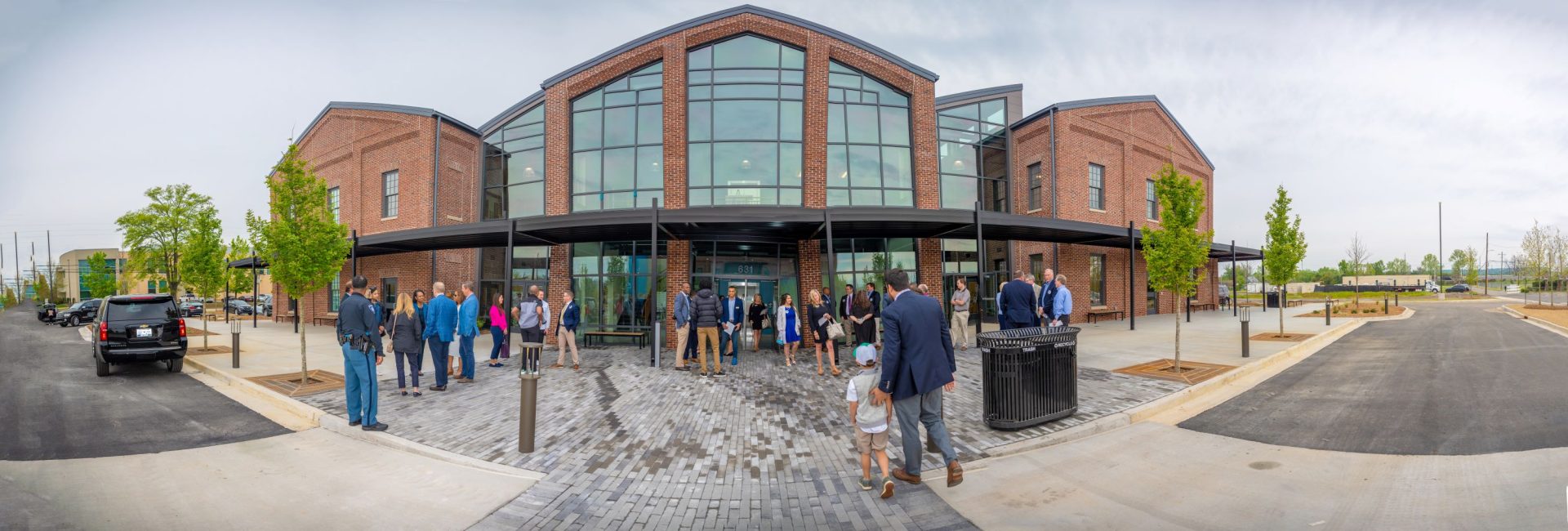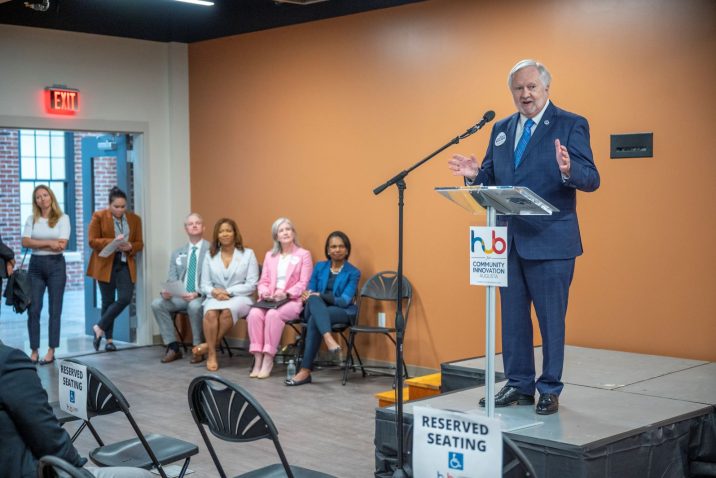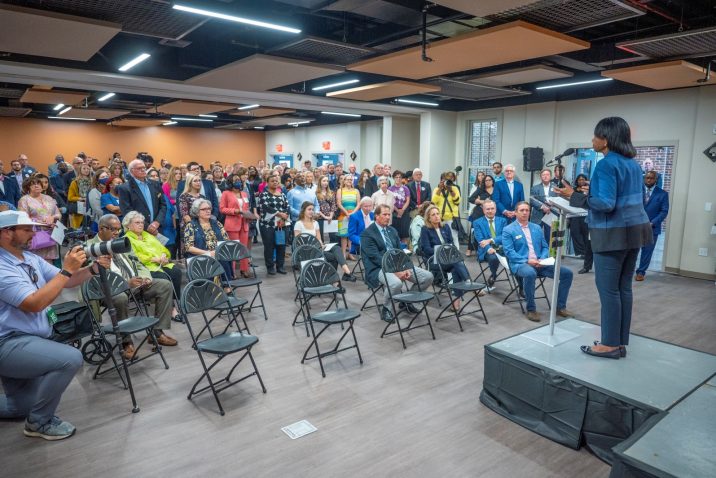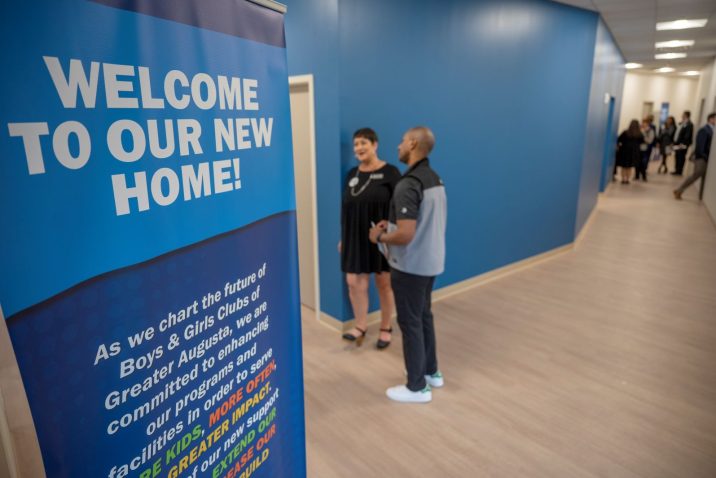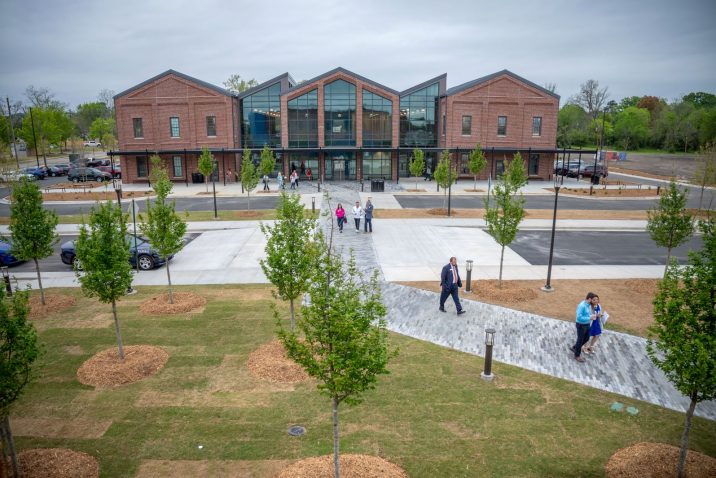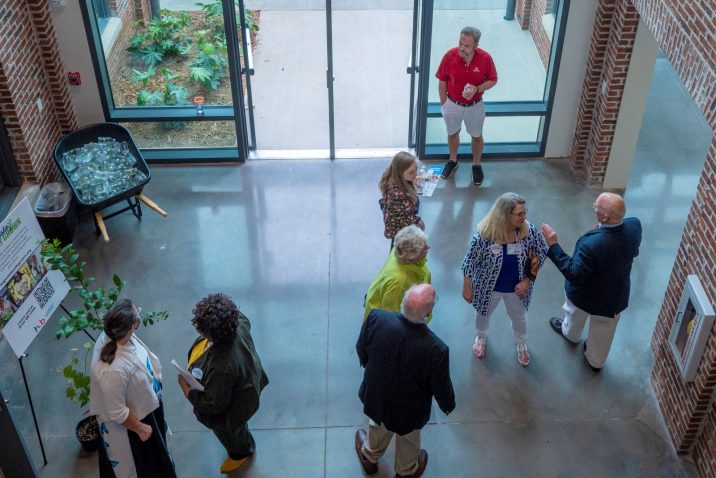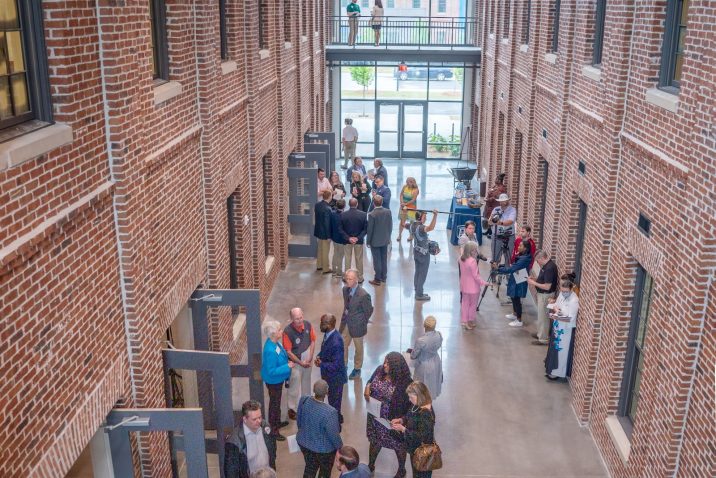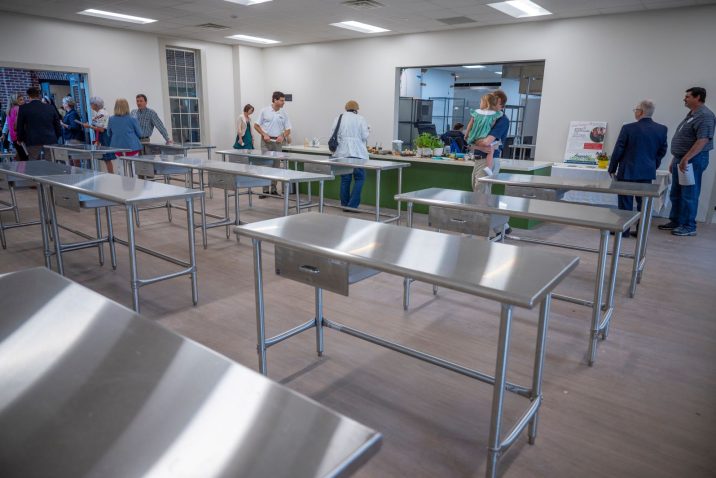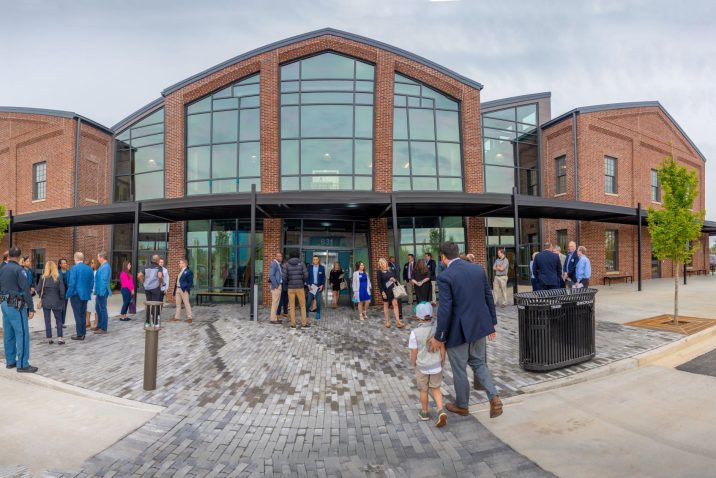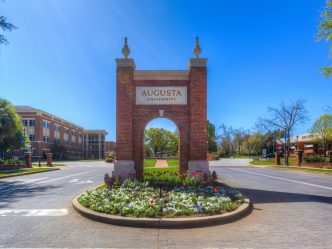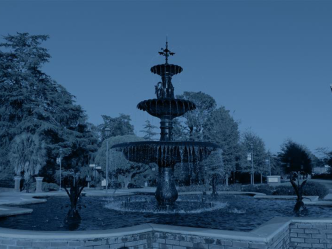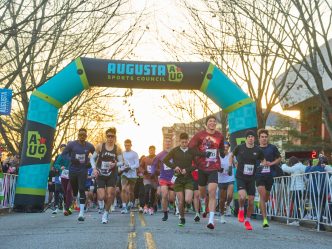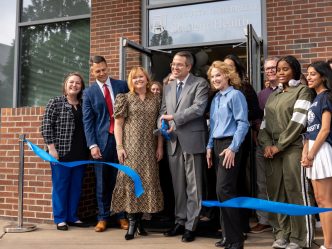In just over six months, The HUB for Community Innovation has risen from an empty field and now is the home of five nonprofits, including the new location for Augusta University’s Literacy Center.
A coalition led by the Community Foundation of the CSRA, the Boys & Girls Club of the CSRA and the Medical College of Georgia Foundation came up with the idea to revitalize the historic Harrisburg and Laney-Walker neighborhoods, and The HUB was the end result.
The HUB is the new location for the Boys & Girls Clubs of the CSRA, Augusta Locally Grown, Harrisburg Family Health Center and RISE Augusta. All serve an important role in Augusta and the two local communities. At the grand opening on April 5, former United States Secretary of State Dr. Condoleezza Rice was the guest speaker.
This community hub is made possible from a $10 million donation from Augusta National Golf Club and their partners AT&T, Bank of America and IBM, as well as other federal grants.
Augusta University President Brooks A. Keel, PhD, knows The HUB will play a big role moving the area forward.
“I am proud to see this community collaboration move from an idea into a reality right at the front door of our university’s Health Sciences Campus,” said Keel.
“As the state’s only public academic medical center, we share the responsibility of taking care of our community, helping everyone reach their fullest potential. The HUB has five nonprofits to do just that, to help this community thrive through access to quality health care, literacy and education, healthy nutrition and a sense of well-being.”
“This is an absolute game changer for the community as well as the university,” said Dr. Judi Wilson, dean of the College of Education. “When I think about free tutoring services, the health care services, being able to provide good health, education and good nutrition here in this local community, it’s just incredible.”
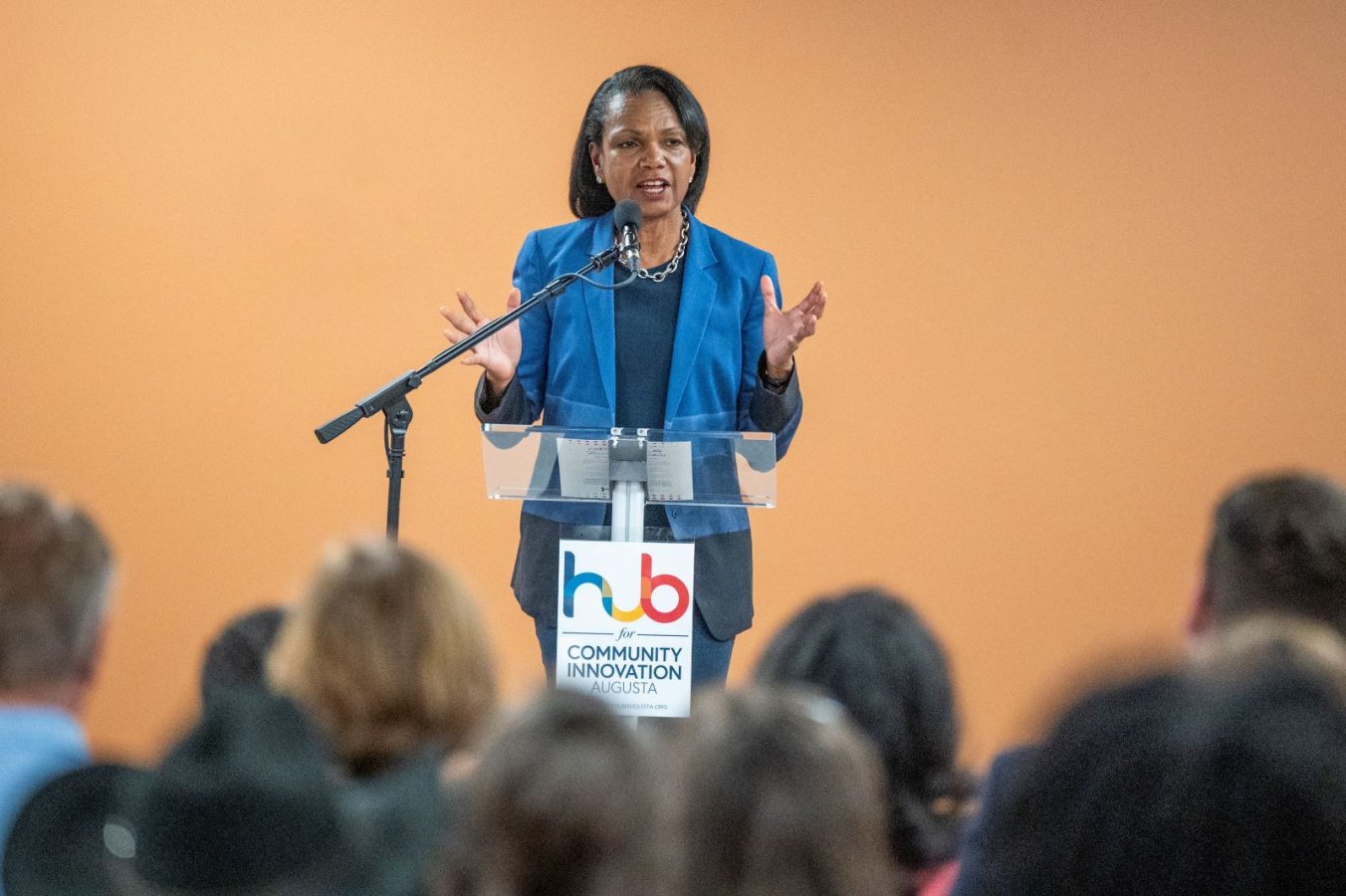
“It goes back to what chance are we giving them,” said Rice. “We can’t have any more eighth graders who can’t read. Education is, after all, the intervention that we have against all societal ills, to try to make it possible for one child at a time to do better.
“You cannot guarantee outcomes, but you can guarantee a path to an outcome. It prepares people and brings innovation to the community and is a part of a trend that we must not just pursue, but pursue with urgency and determination,” added Rice.
Wilson added The HUB’s location is in an education and book desert in Augusta. Being able to provide literacy services for free is a gift and will really put the College of Education on the map.
“One of the things I’ve been searching for as dean is what makes us unique as a college of education. There are a lot of colleges of education in the state of Georgia and across the nation, but what really makes us different? What is our niche? And this is one of our niches,” said Wilson.
The new center also gives staff a better chance to follow each student’s progress in depth.
“We can really do deep diagnostic assessment of students, whether that’s children, adolescents or adults, and really chart their progress. So looking at the trajectory and developing a personalized plan for them,” Wilson added.
Wilson also indicated that the College of Education will be able to do more interdisciplinary research. They are already doing it with the Medical College of Georgia around literacy and health care, and there’s more to come.
The AU Literacy Center was developed over 30 years ago by Dr. Paulette Harris. Before her death at the age of 71, Harris was part of the team that looked for the new location of the literacy center. Wilson said she will be honored with a picture and plaque talking about the legacy she left behind for the literacy center.
Right now, about 85 students and 25 Augusta University tutors are part of the literacy center. Tutors are playing even bigger roles than in years past, since the pandemic has led to learning loss, a major concern of all educators.
This new space not only gives students and tutors more room to work, but includes a dedicated space for adult and adolescent tutoring. It was specifically designed to be inviting and to create a welcome space in the community.
“Author William Purkey talks about how schools should be the most inviting place in town,” said Wilson.
“This is not a school, but a subculture of school, and we’re coming along with the school system and with families to support literacy development. If you walk into this space, you already feel welcome and like you’re part of the community and that matters. When you’re trying to learn and you’re taking a risk to learn, you need to be in a safe space, and that’s what this is going to provide us.”
 Augusta University
Augusta University
